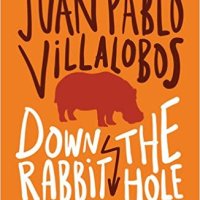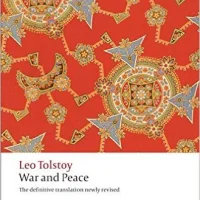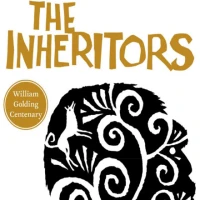This was a strong, strong reading month. I read a lot of books, but more importantly I read a lot of good books. Many of these I wouldn’t have discovered (or at least wouldn’t have tried) without the blogosphere so thanks to those of you who’ve been busy posting about Tessa Hadley, Annie Ernaux and Jessica Au who I might well otherwise have missed or ignored.
The Past, Tessa Hadley
Simply brilliant. My first Hadley, but definitely not my last. It’s that classic middle class English novel thing about a bunch of fairly privileged people in the countryside not doing very much, but as ever execution is everything. Here family tensions come bubbling out as adult siblings take their partners and in one case basically an acquaintance on holiday to their old rural family home which they’re considering selling. There’s a lovely mid-section which ducks back several decades showing how events then inform events now. Just a really well constructed book. Lots of reviews of this one, but Jacqui’s here is the one that tipped me over into actually reading it.

Betty Boo, Claudia Piñeiro (translated by Miranda France)
Sadly my last Piñeiro, in the sense that I’ve now read everything by her in translation. Happily I believe more is coming. Here a former best-selling crime writer and washed-up former star crime reporter get together to investigate a murder in a rich gated community. They’re supported by the star reporter’s young replacement which makes for one of the novel’s better strands as the older reporter slowly and rather reluctantly becomes mentor to the younger.
Piñeiro explored the same territory in her Thursday Night Widows and unfortunately for me that one was simply better. The central characters here are great, among her best in fact, but the crime got a bit far-fetched and it all just felt a bit less tight than usual. It’s not bad, in fact it’s pretty good, but for me Piñeiro has written better. Guy wrote a great review of it here.

New Atlantis, Lavie Tidhar
Lavie Tidhar is a somewhat prolific SF writer that I quite like, so you’ll probably see more by him here in due course. This is a rather gentle picaresque novel set long long after an unspecified apocalypse has reshaped the earth. The archivist central character travels through a strange futuristic landscape with ominously intelligent ants and sentient coral in search of I honestly don’t remember what. The plot is actually pretty minimal, it’s very much about the world and journey and I rather enjoyed it.

Dead Stars, Álvaro Bisama (translated by Megan McDowell)
On to darker and more difficult fare here. The wife of a couple about to finalise their divorce sees in the paper that a woman she knew years before has just been arrested. Memories unfold from her and her husband as they each look back on a history shaped by politics both national and personal.
Technically this is pretty impressive. The chapters are small, sometimes just a sentence, and yet Bisama captures both a time in Chilean history and the history of a marriage. My ignorance of Chile’s recent-ish past means that I’m sure I missed a lot of context, but not so much this still wasn’t a fascinating read. Tony of Tony’s Reading List gives it a good write-up here.

Mothers, Chris Powers
I write these posts in the order I finished the books. In most cases that’s also the order that I read them in. Short stories though I space out, so typically by the time I finish a collection I’ve already been reading it (possibly interspersed with other collections) for a couple of months or more.
Chris Powers wrote an entire series in the Guardian on the art of the short story. He’s therefore set himself a bit of a high bar in bringing out his own collection. Fortunately he meets it. I thought this superb. The stories range in length and subject matter but show a real appreciation of the craft of the short story. Three of the stories are connected and some common themes run through the collection, but it’s the sheer skill Powers brings to this that made me love it. It’s hard to discuss Powers’ technique without spoiling some of the stories, but I will say that I immediately reread some just to see how he pulled them off.
David Hebblethwaite wrote a review of this which you can find from his blog here along links to an interview and to a couple of the stories (my favourite of the collection, The Crossing, and probably my least favourite, Johnny Kingdom).

The Many, Wyl Menmuir
There’s been a trend recently in horror cinema of horror as metaphor. Of course horror has always acted as metaphor, but recent films have made the link much more explicit exploring themes such as bereavement, male violence, fear of dementia, big topics. It’s not a hugely successful trend, mostly as later in the film you tend to get a tension between the logic of the horror narrative and the logic of the metaphor. Put simply, if you’ve established that the true horror is dementia then the metaphor demands the protagonists come to terms with their issues, but that doesn’t make any sense when in the fiction they’re grappling not with a declining family member but with some flesh-eating monster. The Babadook inspired the trend and did pull it off. Its successors less so.
Anyway, The Many. A man moves to a remote fishing community where he has bought up the home of a young fisherman who died in a tragic accident. The community aren’t exactly welcoming. So far we’re in the classic territory of the tension between gentrifier and local community (the film Bait explores this very well). Here however the narrative is slippier. The fish in the bay are few and mutated. Some unexplained (government? corporate?) agency buys the catches anyway. Reality seems at times slippery. I’ve made it sound like SF or horror, but it’s not, it’s metaphor.
It’s well written if at times perhaps a little too oblique. By the end however the metaphor for me rather overwhelmed the narrative with the result that it becomes a bit neither one thing nor the other. Too solid and real in the most part to work as fable or allegory. Too openly unreal to work simply as story.
I should say in fairness that plenty of folk, including the Booker jury, liked this a lot more than I did. You might find you have more in common with them than me on this one.

Babette’s Feast, Karen Blixen
I so wanted to like this. I’ve not seen the film Babette’s Feast but I have read and liked a Dinesen before (with some mild caveats).
The stories here are lengthy fables as much as anything else. Honestly I can barely remember any of them and I had to push myself to finish this. Blixen/Dinesen typically gets pretty good reviews so this may be just a case of bad chemistry, but I find it hard to write about this since all I really remember is that I didn’t like it.

The Fire Engine that Disappeared, Sjöwall & Wahlöö (translated by Joan Tate)
I’m reading one of these a month now. This is another great entry. Here a house fire results in several deaths and prompts an investigation when it becomes apparent it wasn’t an accident. With several victims though which one was the target? It’s not my favourite of the series but it’s definitely a solid entry with consistently great characters and a satisfying story. If you’ve any interest in the Scandinoir genre at all these are definitely worth reading.

Happening, Annie Ernaux (translated by Tanya Leslie)
What to say? I didn’t love The Years as much as many have (though I did like it a fair bit). A Girl’s Story I thought was great. This is something else. It’s the account of Ernaux’s illegal abortion in the 1960s.
Ernaux is unsparing, not just of the procedure itself but also of just how trapped she is in a society where condemnation comes easily but access to vital medical services is dependent on chance acquaintances being willing to risk punishment to point you in the right direction. Ernaux shows too how when you’re in trouble you really can’t predict who will help, who will try to take advantage and who will turn their back. It’s brilliant. Jacqui wrote an excellent review of this here. I know it’s a dark subject matter and I know you probably don’t want to read it, but this is great and honest writing and I recommend it very highly indeed.

Cold Enough for Snow, Jessica Au
A young Chinese-Australian woman walks through Tokyo trying to connect with her now elderly mother. It’s a slight novella, nothing really happens and the book is elusive enough that we can’t really be certain how much of what we read is real. This is a book of mood and moment. I’m not absolutely sure the whole is greater than the parts, but the parts are very good indeed and the whole comes in at under a 100 pages.
I’m pretty ruthless these days on what books I keep, due to space constraints. This has made the cut because I believe it will bear rereading. It’s a bit like poetry – what’s not said carries as much weight as what is, perhaps more. Kaggsy captures it well here.

And that’s it. Phew!












Glad to hear you enjoyed the Chris Power, I thought it was excellent. Keen to check out The Many and Betty Boo now. Great post.
Glad you had a good month’s reading, and i think the Martin Beck series is marvellous – definitely my favourite Scandi-crime. And thanks for the shout-out for the Au – I thought it was a wonderfully elusive book, and I definitely want to read it again.
The film Babette’s Feast is excellent. I have never read it. Glad you liked the Piñeiro. I occasionally check to see if there are any new titles from this author in translation.
Seconding Guy’s recommendation of Gabriel Axel’s Babette’s Feast. It’s a long time since I last saw it (maybe 20 years?), but I suspect it will still hold up.
What a terrific month of reading, you’ve had – so much good stuff here, not just the Hadley, Ernaux and Au! (Many thanks for linking to my reviews, always very much appreciated.)
Your commentary on The Past has just reminded me of something I thought about at the time but didn’t comment on in my piece, possibly because it’s quite hard to pin down. In the hands of another (male) writer, this scenario — set as it is among the comfortably-off middle classes — could have been insufferable, but somehow with Hadley it’s anything but. I don’t know if that’s because she’s: a) a woman, b) highly perceptive/attuned to her characters’ emotions or c) simply a brilliant writer. Maybe it’s a mix of all three, but I couldn’t help but think that Hadley’s version of this novel was far more humane and enjoyable to read than say Ian McEwan’s might have been.
Pineiro’s Elena Knows (which I think you’ve read) is in my TBR, so I’m hoping that will hit the spot. I’m also intrigued by The Many, albeit with your caveats about horror as metaphor. On the film front, have you seen Relic by Natalie Erika James? I’m guessing you might have as it would fit your ‘fear of dementia’ category. It’s probably my favourite of the recent ‘horror as metaphor’ films, although the very unsettling Saint Maud might qualify too?
A shame Ox & Pigeon never took off – I did enjoy the few I read of theirs (ironically, it’s probably Zambra, who wrote the foreword, and McDowell, the translator, who have gone on to bigger and better things…). Also just finished a reread of ‘Cold Enough for Snow’ (in the Australian edition), ready for a review next week, hopefully. I agree, very good in parts 🙂
Thanks Cathy. Chris Powers definitely learned something in all those short story overviews he wrote.
Karen, aren’t they great? I mean they have their oddities, but overall it’s no wonder they had the impact they did.
Guy, I’m on Charco’s mailing list so I think there will be alerts. I understand they are planning more.
Jacqui, it’s fair to say I’m not a fan of Ian McEwan. Gender may have an impact, I honestly don’t know, but I think it’s mostly your b and particularly your c. I always think execution is everything.
Elena Knows is brilliant. They’re very different, but my two favourite Piñeiros are Thursday Night Widows and Elena Knows.
I was thinking of Relic, among others. I do like it, but the logic of the film falls apart at the end for me. Saint Maud I think balances on an absolute high wire then totally lands the ending in a fraction of a moment. For me it’s one of the best debut films of recent years.
Tony, indeed, they had a good eye. Looking forward to your Au review, particularly as you’ve now read it twice.